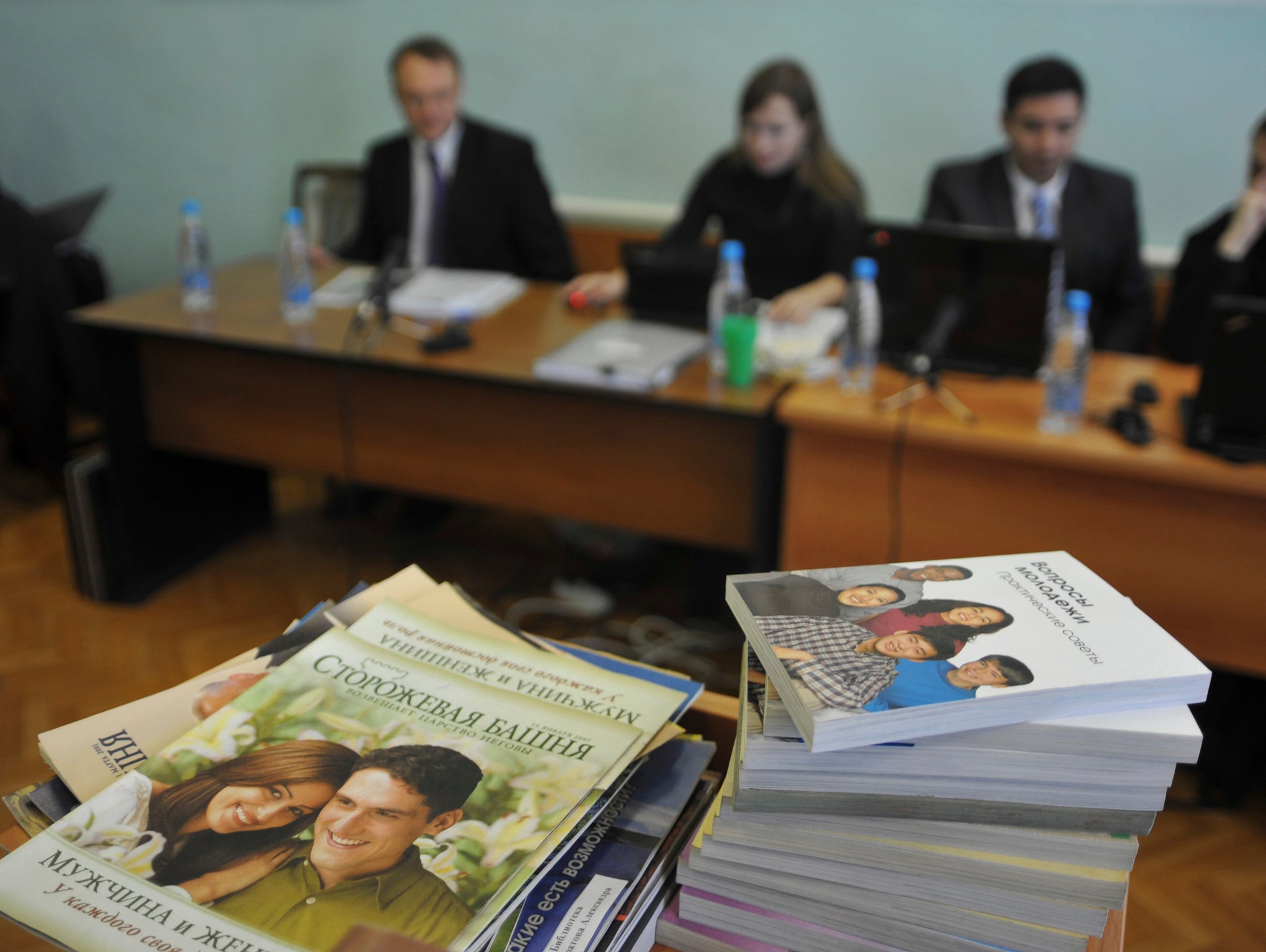Russian Government files lawsuit against Jehovah’s Witnesses to declare it an extremist group
More than 170,000 people in Russia are at risk of being criminally prosecuted for reading the Bible together or talking to others about their faith

Jehovah’s Witnesses should be declared an extremist organisation, according to Russia’s Ministry of Justice, which asked the country's Supreme Court to “ban it and liquidate it”.
The legal filing is placed on the court's website, although no is date given for legal action.
Calling the move “an attack on their worship”, which could have “dire consequences” for its congregation in the country, the Jehovah Witnesses said they had received reassurances from the ministry that it was not going to go ahead with the lawsuit.
They made the claim in a statement released from their administrative center around 25 miles northwest of St. Petersburg.
However, if the court does declare them “extremist”, the group said more than 170,000 Witnesses in more than 2,200 congregations in Russia could be criminally prosecuted for meeting for worship,
Reading the Bible together or talking to others about their faith could lead to prosecutions, they added. Properties dedicated to worship and almost 400 legal entities could also be dissolved, they said.
Vasiliy Kalin, a representative for the Russian group, said: “The profound desire of each of Jehovah’s Witnesses in Russia is just to be able to worship our God peacefully. For over 100 years, the authorities in Russia have trampled on the guarantees of their own laws, which grant us this right.
“I was just a boy when Stalin exiled my family to Siberia merely because we were Jehovah’s Witnesses. It is sad and reprehensible that my children and grandchildren should be facing a similar fate. Never did I expect that we would again face the threat of religious persecution in modern Russia.”
Russian authorities threatened to close Jehovah’s Witnesses administrative centre last March, when they issued a formal warning to the congregation that the “religious association will be subject to liquidation” if it failed to eliminate within two months the violations identified by the government as “extremist”.
In February, the General Prosecutor’s Office requested an audit of the religious group’s administrative centre and 73,000 documents were handed over for inspection, according to Russia's Sova Center of Information and Analysis, which monitors hate crimes and the enforcement of anti-extremist laws.
Jehovah’s Witnesses first legally registered as a religious group in Russia in 1991 and was registered again in 1999.
They have been repeatedly prosecuted in Russia but for the past decade, they have been targeted by the tightening of restrictions on their religious freedoms.
Several warnings were issued to the religious groups’ administrative centre, which is located 40km north of St Petersbourg in the village of Solnechnoye, accusing it of being unlawful.
In 2006, Russia changed its legal definition of “extremism”, removing the element of violence or hatred but stating the “incitement of….religious discord” as the criteria. This means Jehovah’s Witnesses have the same legal status as Isis.
Two year ago, the government banned their international website because it deemed it “extremist” and a year later it prevented Bibles published by the religious group to enter Russia.
In 2010, the European Court of Human Rights found a ruling by a Russian court to ban the organisation "unlawful".
Join our commenting forum
Join thought-provoking conversations, follow other Independent readers and see their replies
Comments
Bookmark popover
Removed from bookmarks